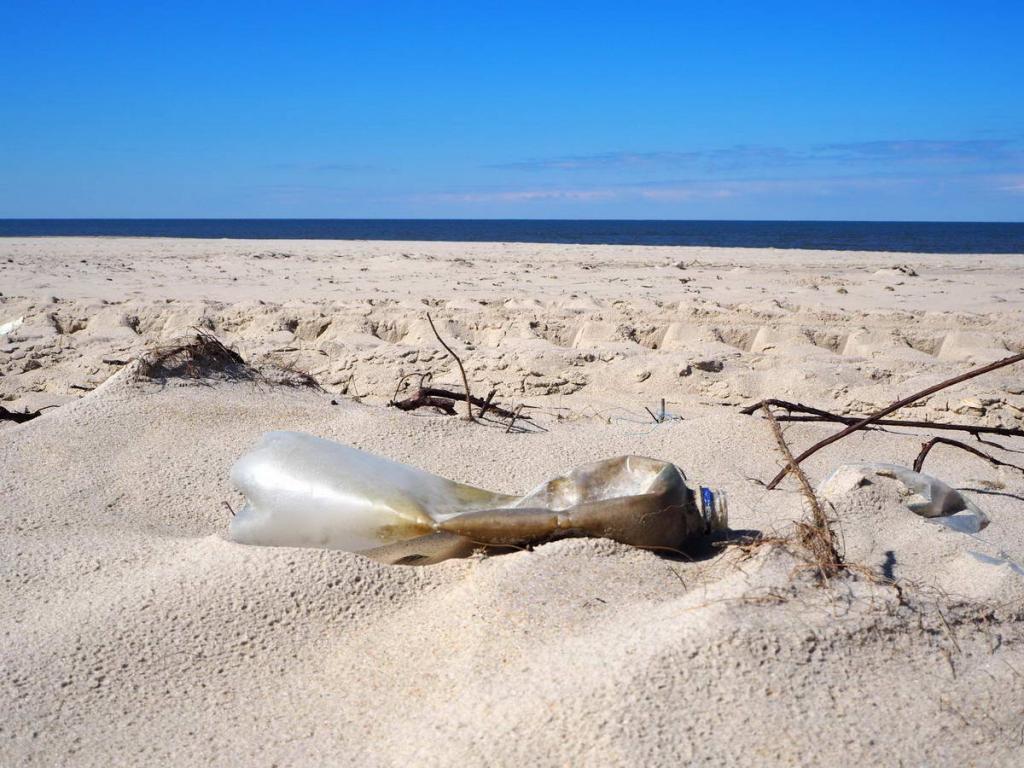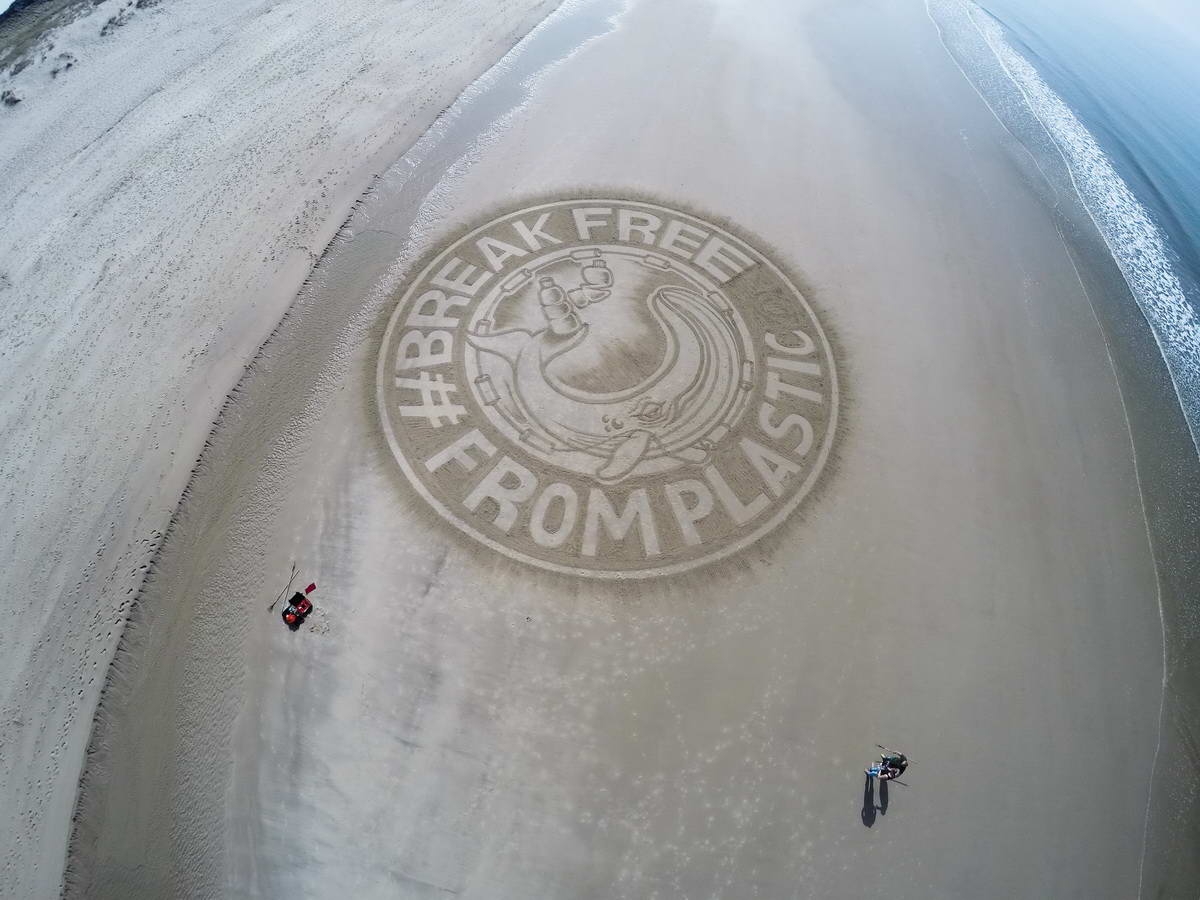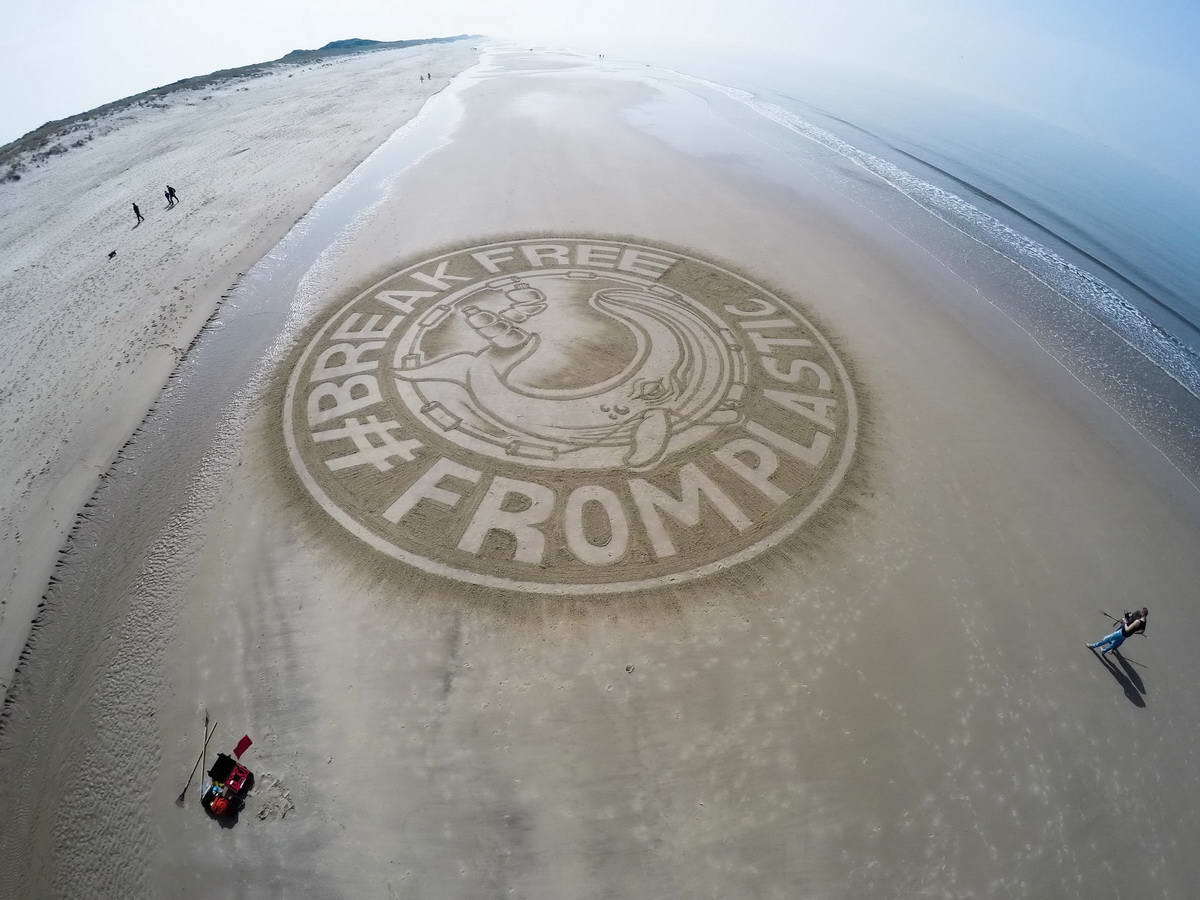
© Plastic waste on the beach
(c) Olaf Klodt

© Earth Day 2018: Beach art on Sylt
(c) Tim Hoekstra/EEB

© Earth Day 2018: Beach art on Sylt
(c) Tim Hoekstra/EEB
Earth Day 2018: Fight the plastic garbage
April 18, 2018
Protest against plastic in the sea on Sylt with gigantic beach artWith a 40-meter "sand painted" whale, the German Environmental Aid (Deutsche Umwelthilfe) and the European Environmental Office on the island of Sylt have drawn attention to the pollution of the oceans by millions of tons of plastic - whales suffer particularly from PET bottles, plastic bags and disposable cups in the oceans.
This activity sets a sign under the motto "stop the plastic littering" in preparation of the Earth Day on April 22, 2018. The German environmental aid calls a levy on plastic bags, enforcement of the reusable quota for beverage packaging, compulsory deposit for all beverage plastic bottles and a ban on microplastics in cosmetics, hygiene and cleaning products - as a measure against marine pollution.
Our seas are now among the dirtiest places in the world! It is estimated that more than 150 million tonnes of plastic float in them. More than 600 animal species are directly affected. To draw attention to this problem, a huge beach art protest was organized on April 8, 2018 on Sylt at the lighthouse List East: A 40-meter whale kicking a plastic bottle out of the water was impressively painted into the sand. Whales are a symbol of the world's endangered creatures.
Stop Plastic PollutionOrganized by the European Environmental Bureau (EEB) and the German Environmental Assistance (DUH), the campaign was the second of a total of six beach protests that preceded Earth Day on April 22 (countries of the other campaigns: France, UK, Spain, Portugal, Netherlands). This year's theme of the Earth Day is "Stop Plastic Mending" and is supported by NGOs around the world. All the activities are summarized under the hashtag
#BreakFreeFromPlastic.
To stop the increasing ocean pollution urgently effective protective action must be implemented. Therefore, the German environmental aid demands a levy on disposable plastic bottles and bags, the implementation of reusable packaging for beverage packaging, a compulsory deposit for all beverage plastic bottles and a far-reaching ban on microplastics.
"
To get a grip on the problem of marine pollution, waste has to be avoided first and foremost. Because plastic bottles make up the largest proportion of waste in the oceans, drinks should be offered in refillable and low-waste reusable bottles," says DUH CEO Jürgen Resch.
Plastic bags represent a particularly great threat to marine animals. For example, in Germany alone, more than 3.8 billion pieces are consumed each year. In order to finally end this environmental problem, the DUH demands for Germany a nationwide plastic bag tax of at least 22 cents - on the Irish model. In Ireland, by introducing a levy within a few years, bag consumption has been reduced from 328 per capita per year to just 16.
Plastic waste decays over years in smaller and smaller parts. This so-called microplastic endangers water ecosystems, binds pollutants and reaches the human food chain via fish and mussels. "
Small plastic particles are mainly in cosmetics, detergents and cleaners. Therefore, microplastics must be banned as its component. The Swedes have already demonstrated how to do it and, without further ado, banned microplastics in cosmetics," says Thomas Fischer, head of the DUH circular economy.
More Information:
www.duh.de/meeresschutz und
www.earthday.org